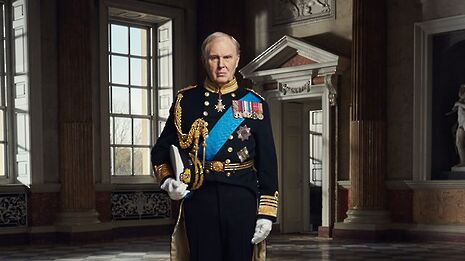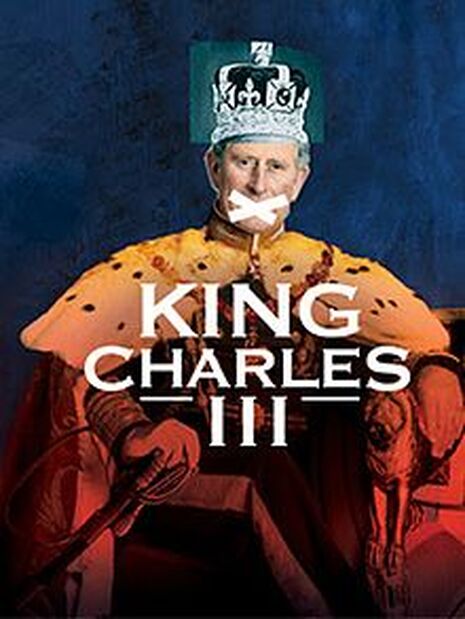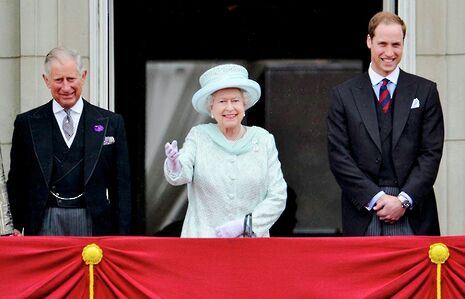Charles III: Portrait of a Future King
Josh Kimblin ponders the personality of Prince Charles with Piers Brendon, historian of the Windsor dynasty

“Uneasy lies the head that wears a crown,” Shakespeare tells us. But what of the heads who will wear the crown?
Charles, Prince of Wales, is a contradictory figure. He is at once familiar as an image but elusive as a character. The details of his most intimate relations were subject of tabloid gossip throughout the 1980s and ‘90s; he has lived 68 years in the public eye, as the longest-serving heir in history. But who is the man behind the throne?
My guide to the heir is Piers Brendon, a Fellow in History at Churchill College. Brendon has published multiple works on the Windsor family, including a biography of Edward VIII and a cutting (“acid etching”, in his own words) portrait of Prince Charles in his book, Eminent Elizabethans.
Our entry point is the recently televised play, Charles III, produced by the BBC and written Mark Bartlett. The play’s speculative plot charts Charles’ path to abdication over a constitutional crisis, in which the obstinate king refuses to give royal assent to a bill limiting press freedom.

Brendon was appreciative of the play. “It was a jolly romp; Tim Piggott-Smith provided a masterly performance as Charles, as one would expect. Of course, the plot was implausible, in the sense that Charles has waited all his life to become king: he is unlikely to throw it away on a constitutional matter. What was even more implausible was that the contested issue should be the press freedom. Given that Charles has suffered so much at the hands of the press over the years, this seemed quite unlikely.”
“However, he has said – and this is very significant – via Dimbleby, in an 2008 Sunday Times article, that he wanted to be a monarch in a different way than his mother has been. He wants to participate more, in a potentially controversial manner, in public life. This was the play’s basis for Charles digging in his toes over a constitutional matter.”
“Charles has got an incredibly hard act to follow.”
For Brendon, the play’s most significant feature was to focus the viewers’ attention on the inevitability of the Queen’s death. “It can’t be too long now,” he muses, “although it could be postponed for as long as ten years. I think this will bring an enormous psychological and political change to the nation, because the present Queen has been around for as long as anybody can remember. I’m 76 and I can just remember the coronation.”
“The obsequies which followed Queen Victoria’s death in 1901, after a reign of 63 years, were much more intense than those which followed the death of Princess Diana – and that was an example of mob grief to beat the band. When the Queen dies, it’s going to be that in spades. Therefore, Charles has got an incredibly hard act to follow. And if he really does wish to do things differently to his mother, it could cause serious institutional damage to the monarchy.”
Charles will certainly bring the baggage of a royal soap-opera to the throne; will his public image, especially post-Diana, ever recover?
“The Queen has largely been immune to the demise of deference; the royal fetish still holds it magic.”
“It’s quite difficult,” Brendon acknowledges. “The point about the monarchy is that it is intended to unify. It has been a unifying force in the sense that the Queen has never said anything interesting about any subject whatsoever. She has never committed herself to any controversial position at all.”
“Charles has spent his life committing himself to controversial positions. People like Dominic Grieve [the former Attorney General], for example, warned him that if he went on interfering in politics via his ‘black spiders’ – these handwritten letters which he sends to ministers – he was going to cause trouble. Some of these letters, which have emerged, push his own position very hard. His views are thought by large numbers of people, particularly experts in the fields of architecture and environmentalism, to be controversial.”
“These letters infuriated Tony Blair, so much so that Blair complained to his mother about them! So, it’s going to be extremely difficult for him to become a unifying king having been a controversial Prince of Wales.”

Does the ‘Caroline succession’ therefore pose a genuine issue for the monarchy’s long-term existence? Authority and tradition no longer hold sway as they did when Elizabeth acceded to the throne; challenging the status quo is now the default position of many on the political left. How will a millennial generation respond to a king who uses his privileged position to pursue his own ends?
“The age of deference has indeed been going ever since the 1960s,” Brendon agrees. “The Queen has largely been immune to it; the royal fetish still holds it magic. But Charles is not immune to it, because he’s been embroiled in all this controversy – from Camillia-gate to the Squidygate Tapes.”
This problem is rooted in a complex relationship with the media. “The problem is that he has used the media to put his own positions and has thus made himself vulnerable to being knocked by the media itself. The Duke of Edinburgh might well declare that Rupert Murdoch has undermined the monarchy but when they produce a great commercial for themselves, in the shape of a royal wedding or intimate interviews over mental health, you can’t have it both ways. They have made a rod for their own backs.”
“He’s a bit of a contradiction in terms; I describe him as a ‘royal oxymoron’.”
“The royal family might have said, pace Bagehot, that we ‘mustn’t let daylight in upon majesty’ and followed the path of the Japanese royal family, resisting the public gaze. But they haven’t and, particularly where Charles is concerned, they are likely riding for a fall.”
My ears prick at that remark – ‘a fall’ in what way?
“A fall in public opinion,” Brendon answers. “A republic is not imminent, although the organisation which I belong to, which is called Republic, believes that it is. They think, quite wrongly, that it will be their moment when the Queen dies. By contrast, I think the Queen’s death with generate a huge wave of support. The question will then be: can Charles hack it?”
But would King Charles III dare to be provocative? After a wait likely in excess of 70 years, he has had a great deal of time to consider the risks of a royal misstep.
Lucy Worsley: a Janeite crusader?
“Well, he’s a curious mixture of diffidence and stubbornness,” Brendon explains. “He’s a bit of a contradiction in terms; I describe him as a ‘royal oxymoron’. He has this mixture of intellectual impressionability – his father described him as an “intellectual pillow”, bearing the imprint of the last person who sat on him – and yet, he has been extraordinarily pertinacious in pursuing his own agenda.”
It seems the jury remains out: royal-watchers will have to lie uneasy until King Charles III reveals himself upon a throne
 News / Eight Cambridge researchers awarded €17m in ERC research grants27 December 2025
News / Eight Cambridge researchers awarded €17m in ERC research grants27 December 2025 News / Clare Hall spent over £500k opposing busway 24 December 2025
News / Clare Hall spent over £500k opposing busway 24 December 2025 Comment / League tables do more harm than good26 December 2025
Comment / League tables do more harm than good26 December 2025 News / Caius mourns its tree-mendous loss23 December 2025
News / Caius mourns its tree-mendous loss23 December 2025 Comment / The ‘class’ of Cambridge24 December 2025
Comment / The ‘class’ of Cambridge24 December 2025









